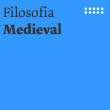Scholastica iberica. A filosofia em Portugal nos séculos XVI-XVII e a sua receção e desenvolvimento no novo mundo
Director: José Francisco Preto MeirinhosInternational partners: Alfredo Culleton (Unisionos, São Leopoldo), Roberto H. Pich (
Instituions: Fundação para a Ciência e a Tecnologia, Portugal + CAPES, Brasil.
Funding: 14.500€ (Portugal), c. 30.000€ (brasil)
Duration: 01.01.2013 to 31.12.2015
Key words: Later Scholastic, Modern Philosophy, Epistemology, Metaphysics
ABSTRACT:
Portuguese and Iberian thinkers of the 16th and 17th centuries made a decisive contribution, but very poorly known, for the development of modern thought. This collaborative project aims to understand on a new basis, with a wide and specialized team, with direct access to unpublished sources, and a systematic study, the role of the Iberian Scholasticism in the formation of modern thought.
The so-called Second Scholastic (16th-17th centuries) had in the Iberian Peninsula one of its contexts of greater expression and creativity. The universities of Coimbra, Alcalá and Salamanca stand out for having hosted some of the most important philosophers of the time. The thought of authors such as Francisco Suárez, Luís de Molina, Pedro da Fonseca, the Coimbra Jesuits, among many others, have earned growing attention in fields such as logics, epistemology, metaphysics and political philosophy. Some studies and projects have tried to shed light over these authors and their institutional context or time. However, there is still plenty to be studied. Many authors, with vast work and remarkable importance in their time, continue to be ignored or only mentioned in brief pieces. Immense manuscript collections are yet to be studied in several Portuguese Libraries, such as Porto, Braga, Coimbra, Lisboa. On the other hand, it has never been carried out the long term study of these authors, besides their isolated contribution to the history of philosophy, including them in a movement that begins with the foundation of the universities in the 13th century. These are some of the lacunas this projects aims to overcome from three thematic, yet articulated approaches.
Each one of the groups will study different but complementary aspects of this period, perhaps the brightest of philosophical thought in Portugal and worlwide influential. Several works written or published in Portugal in this period had until mid-seventeenth century dozens of editions throughout Europe, and even in China. Authors such as Descartes and Leibniz knew these works well and they did a good part of their training. His influence was also felt in the Brazilian territory, mainly driven by religious orders which founded here schools. Scholars of theology, philosophy and law, working in newly founded colonial universities (and other related training institutions), from Mexico to Chile, Ecuador, Peru and Argentina, have been educated and influenced by the doctrines studied here.
The project seeks to understand both sides of this scholar world, its dynamism, the most representative works and authors. The study of manuscripts will be of nuclear importance, but also works with contemporary editions.
The project is mainly philosophical, trying to understand for the first time in a systematic way, the circulation of ideas in the following areas: (i) the method of inquiry and discovery of knowledge and truth, (ii) the ideal of reform and the conceptions of power, law and justice, (iii) the principal metaphysical and epistemological positions, particularly on the nature of knowledge, (iv) the emergence of the new positions on ethics and the rights of peoples.
The expertise gathered by the two teams and the way on activities are organized are intended to ensure complementarity of skills and resources, benefiting from a model of advanced training in the context of research and international cooperation.
Both teams will consider complementing the two sides of the same historical and philosophical complex. For this reason the Portuguese contribution is titled Scholastica Iberica and Brazilian contribution is titled Scholastica colonialis.
Missions
Brasil --> Porto: January 2013
Porto --> Brasil: July 2013
Brasil --> Porto: January 2014
Porto --> Brasil: August 2014
Brasil --> Porto: January 2015
Porto --> Brasil: July 2015
 Membros que participam neste projecto
Membros que participam neste projecto
Página actualizada a 20-10-2014 @ 17:59








